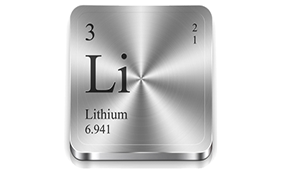
Quebec lithium developer's stock craters after cost blowout


Nemaska, which has also received funding from the Quebec provincial and Canadian federal governments, is building the Whabouchi hard rock lithium mine in the James Bay region and Shawinigan processing plant north of Montreal, aiming to put Canada on the global lithium production map.
Nemaska has already spent over $138 million on the Whabouchi mine and mill, and another $67.3 million for the plant in Shawinigan.
The additional funding is largely related to installation and indirect costs, said the company. Direct purchase package costs – mainly equipment – are in line with the original budget.
"The revised overall project cost reflects a more precise outlook on installation costs and other key variables to the completion of our project," Nemaska president and CEO Guy Bourassa said in a media statement.
“We now have a better understanding on the remaining scope of the project, estimated budget and current market conditions."
“Our objective remains to close the required financing on time to stay on target to complete mine construction in October 2019, in order to make the first shipment in December 2019, followed by the start-up of the Shawinigan facility the year after,” Bourassa said.
The Canadian developer arranged $1.1 billion financing for the lithium project last year. SoftBank's Vision Fund entered the mining sphere for the first time in May 2018, buying up to 9.9% of Nemaska Lithium.
Construction and purchasing at both sites are on schedule, the company said.
Lithium prices have been under pressure for the past six months. While demand continues to accelerate the supply response has been dramatic— pushing down prices for the battery raw material. Four new spodumene mines went into production last year. While spodumene traded either side of $900 a tonne for most of 2018, prices fell sharply in January.
While generally higher on the cost curve than brine operations, spodumene concentrate is converted into battery-grade lithium hydroxide which trades at around $16,000 per tonne ex-works in China, down from $20,000 six months ago.
Pumping and evaporating brine solution produces lithium carbonate which sometimes requires further refining or conversion to feed into the battery supply chain. Battery-grade lithium carbonate in China has halved in value over the past year and is now trading under $12,000 a tonne.


Trump weighs using $2 billion in CHIPS Act funding for critical minerals

Electra converts debt, launches $30M raise to jumpstart stalled cobalt refinery

Codelco cuts 2025 copper forecast after El Teniente mine collapse

Barrick’s Reko Diq in line for $410M ADB backing

Abcourt readies Sleeping Giant mill to pour first gold since 2014

SQM boosts lithium supply plans as prices flick higher

Pan American locks in $2.1B takeover of MAG Silver

Nevada army depot to serve as base for first US strategic minerals stockpile

Viridis unveils 200Mt initial reserve for Brazil rare earth project

Kyrgyzstan kicks off underground gold mining at Kumtor

Kyrgyzstan kicks off underground gold mining at Kumtor

KoBold Metals granted lithium exploration rights in Congo

Freeport Indonesia to wrap up Gresik plant repairs by early September

Energy Fuels soars on Vulcan Elements partnership

Northern Dynasty sticks to proposal in battle to lift Pebble mine veto

Giustra-backed mining firm teams up with informal miners in Colombia

Critical Metals signs agreement to supply rare earth to US government-funded facility

China extends rare earth controls to imported material

Galan Lithium proceeds with $13M financing for Argentina project

Kyrgyzstan kicks off underground gold mining at Kumtor

Freeport Indonesia to wrap up Gresik plant repairs by early September

Energy Fuels soars on Vulcan Elements partnership

Northern Dynasty sticks to proposal in battle to lift Pebble mine veto

Giustra-backed mining firm teams up with informal miners in Colombia

Critical Metals signs agreement to supply rare earth to US government-funded facility

China extends rare earth controls to imported material

Galan Lithium proceeds with $13M financing for Argentina project

Silver price touches $39 as market weighs rate cut outlook

















